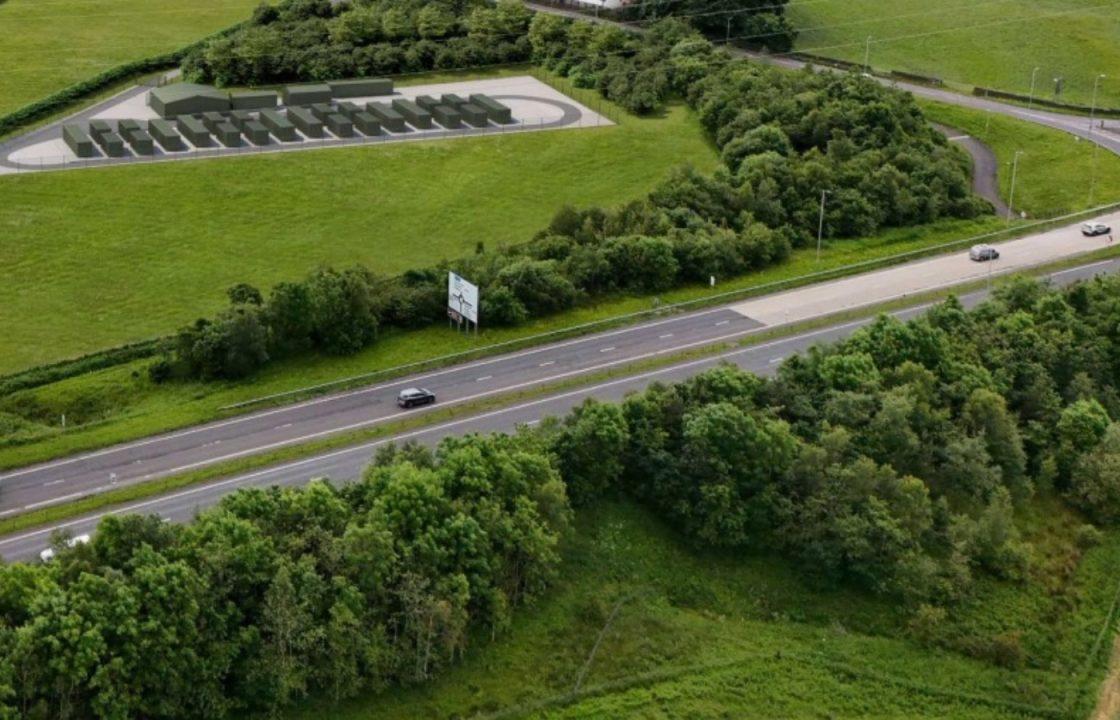Controversial plans to store energy in batteries on greenbelt land in Eaglesham which sparked fears over fire risk have been recommended for approval.
East Renfrewshire Council has previously rejected a bid from Cheshire-based GPC 1337 Ltd to build and run a 40MW battery energy storage facility on the site.
Councillors raised concerns over the risk of fire from lithium-ion batteries and turned down the proposal, which received over 250 objections, despite planners saying it could go ahead.
But the firm has returned with a second application for the greenbelt, agricultural land at the east side of Glasgow Road — and council officials have recommended it can be approved again.
More than 300 objections have been received this time around, and the council’s planning committee met on Tuesday to consider the plans.
The developers have also appealed to the Scottish Government in an effort to overturn the initial refusal. A target date of May 8 has been set for a decision.
Under the plan, surplus energy from the national grid would be stored in batteries to be returned when required. It is described as a “temporary” installation, with the site returned to its previous condition after 40 years.
The firm has said the development would “support the decarbonisation of the energy industry in the UK”. It added 28 other sites have been considered, but this is “the only deliverable, viable” one.
“The planning application is accompanied by a suite of technical documents which demonstrate the proposal will not lead to significant adverse harm,” the plans continue.
But local MSP Jackson Carlaw is one of hundreds to oppose the project. He said there are “very significant reasons” to refuse it.
These include protecting the greenbelt, fire risk from lithium-ion batteries and the “intrusive and inappropriate” nature of the development.
Carlaw added: “The very serious concerns and real-life examples of fires that have erupted at battery plants because of the lithium-ion batteries means the establishment of the intended facility on Glasgow Road would almost certainly undermine safety”.
A council report states the new plans differ from the original as more information has been submitted on fire safety and a water tank is now proposed to be underground.
Planners add the development includes specialised container units for the batteries and fire suppression equipment.
The report states the site has been chosen due to its proximity to the Giffnock sub-station, and aims to contribute towards meeting net-zero targets by providing “a means to balancing the network without the need to rely on non-renewable sources”.
Safety management plans, including an “independent assessment of the development in terms of fire safety”, have been submitted.
Officials add: “The proposal is therefore not considered to give rise to a significant risk to public health.
“Matters relating to the safe and proper operation of the site lie out with the remit of the planning authority and are not therefore material planning considerations.
“It is nevertheless noted that the proposal has been designed in accordance with current industry requirements.
“Following the procurement process, the finalised specification of the technical equipment, including fire suppression measures, will be assessed against the verification and compliance framework to ensure it complies with the relevant guidelines and regulations.”
When the previous application was refused, councillors also questioned whether the site was appropriate and said the energy is “not necessarily from renewable sources”.
The plan was then rejected as there were two votes in favour and four against.
If permission is granted and the appeal over the initial proposal is successful, the applicant could implement either plan.
Follow STV News on WhatsApp
Scan the QR code on your mobile device for all the latest news from around the country


 LDRS
LDRS

























